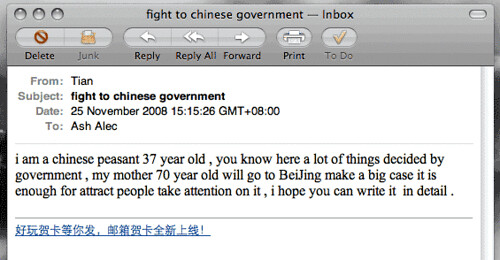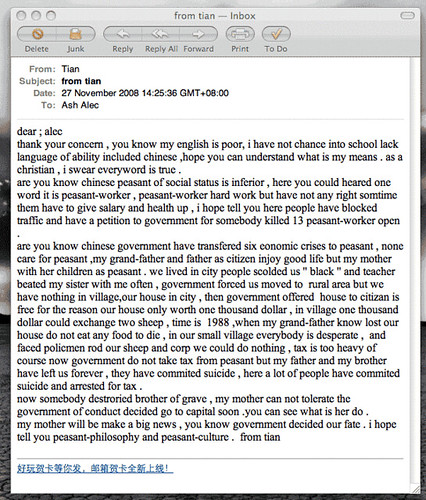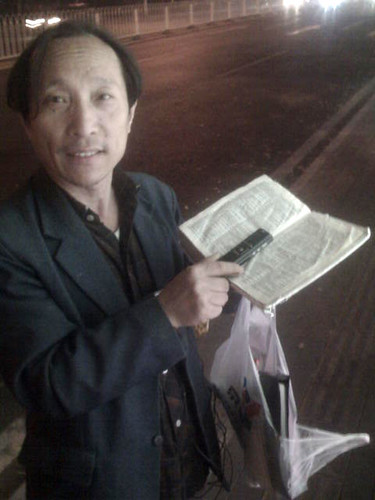Joy, a friend of mine at Peking University, hails from Hunan and studies Information Management (for instance, how Baidu arranges the vast information it aggregates … a hot topic?). This summer, she hopes to be an intern for Boeing’s Future of Flight Aviation Centre, working as a tour guide around the company’s tourism hub and plane factory in Seattle.
She sent me her application to check the English. The form was for Chinese applicants, and one of the questions – in a slightly round-about fashion – targeted how she might handle awkward questions about China from foreigners. (Presumably not: “How dare you use so much cooking oil in your recipes? How DARE you!”)
Here is the unedited last paragraph of Joy’s answer:
4. How do you deal with “culture shock” and communicate with foreigners who hold different opinions with you, especially when you’re talking about some sensitive topics? (Max 150 words)
In no case will I choose something sensitive as my topics. However, when asked such questions, I won’t hesitate to speak out my views. The comments about China positive or not, I will reply objectively, calmly, and on behalf of PKU as well as China.
Note: PKU – Peking University
To what extent are young Chinese representing their country abroad being vetted for suitability to answer questions on ‘sensitive topics’? Will an applicant’s answer to this question potentially deprive them of this opportunity if it doesn’t fill a tick-box? It’s even difficult to tell what the safest answer is.
Joy’s first sentence is spot on, I think. The third too, especially ‘calmly’. It’s the second which leaves room for worry: by ‘speak out my views’, she in some circumstances might be agreeing with the foreigner’s criticism, in others disagreeing. My guess is that the first scenario doesn’t worry the box-tickers: if a single Chinese agrees with criticism of the CCP abroad, it’s no biggie. But in the second scenario: an argument might follow, tempers possibly flare, a scene and major embarrassment could ensure.
Unchecked nationalism is a bigger concern for the government than unmuffled dissatisfaction: it not only gives an impression abroad of China as aggressive, but pressurises the Party to pander to such sentiments if an incident escalates, for fear of the people’s anger turning 180% on themselves (just look at the Belgrade embassy riots, which were allowed to continue so long). And it’s possible to imagine such an incident emerging from a poorly handled tour question.
So I worry Joy isn’t being unambiguous enough. ‘Speak out my views’? Something boring and safe like ‘answer to the extent of my knowledge’ might go down better.




